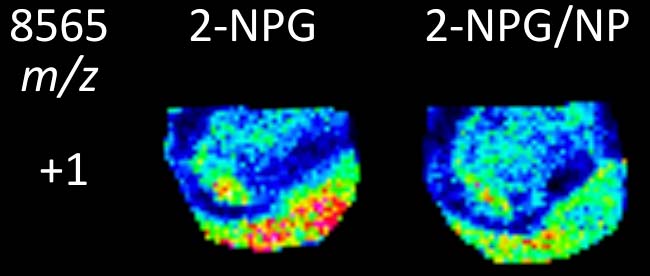National Science Foundation
Tandem Time-of-Flight Mass Spectromer for Proteomics
- S10 RR024520
- $437,000
- Role: PI
- 5/2009-4/2010
Abstract
The instrument described in this application is a matrix-assisted laser desorption ionization (MALDI) tandem time-of-flight (TOF/TOF) mass spectrometer. The proposed instrument will be a part of the shared mass spectrometry user facility and housed in the College of Basic Sciences Department of Chemistry at Louisiana State University. This facility is staffed and supervised by Ph.D. scientists with extensive experience in mass spectrometry and separations. Access to this instrument will significantly enhance the quality, quantity and scope of a large number of NIH supported investigators. Specific projects that will be enhanced by access to this instrument include College of Basic Sciences, Biological Sciences Department: The instrument will be used in analysis of NO-modified iron-sulfur proteins (Ding), protein/protein interactions important in liver metabolism (Pr|fer), and the identification of proteins involved in STAT protein signal transduction pathways (Stephens). College of Basic Sciences, Chemistry Department: the MALDI TOF/TOF instrument will support the study of enzyme function through the development and application of capillary electrophoresis-based approaches for studying enzyme inhibition (Gilman), research in the development of anti-Alzheimer’s peptide analogs (Hammer), the identification of MS/MS bacterial biomarkers (Murray), the study of porphyrin bioconjugates for bioimaging and cancer therapy (Vicente), and the structural analysis of proteins involved in atherosclerotic plaque formation (Warner). Louisiana State University School of Veterinary Medicine: The proposed instrument will be used to achieve maximum sequence coverage in a study of genetics and functions of the HSV-1 membrane fusion protein with MALDI run in parallel with ESI with LC separation of digested peptides (Kousoulas). The proposed instrument will complement a hybrid quadrupole TOF mass spectrometer already in the MS facility and will be able to leverage existing research infrastructure for LC-MALDI plate spotting.
PUBLIC HEALTH RELEVANCE: Mass spectrometers are powerful tools of the analysis of biomolecules and access to them is essential for the success of biomedical research. The proposed instrument has unique capabilities of high mass resolution, large mass range, and high throughput that are not currently available to researchers at Louisiana State University. This instrument will allow NIH funded researchers at LSU to identify and quantify proteins and other biomacromolecules important in understanding and combating diseases and in protecting the public health. The instrument will be operated by skilled technicians, overseen by broadly represented committee and available for use by the entire LSU scientific community.

